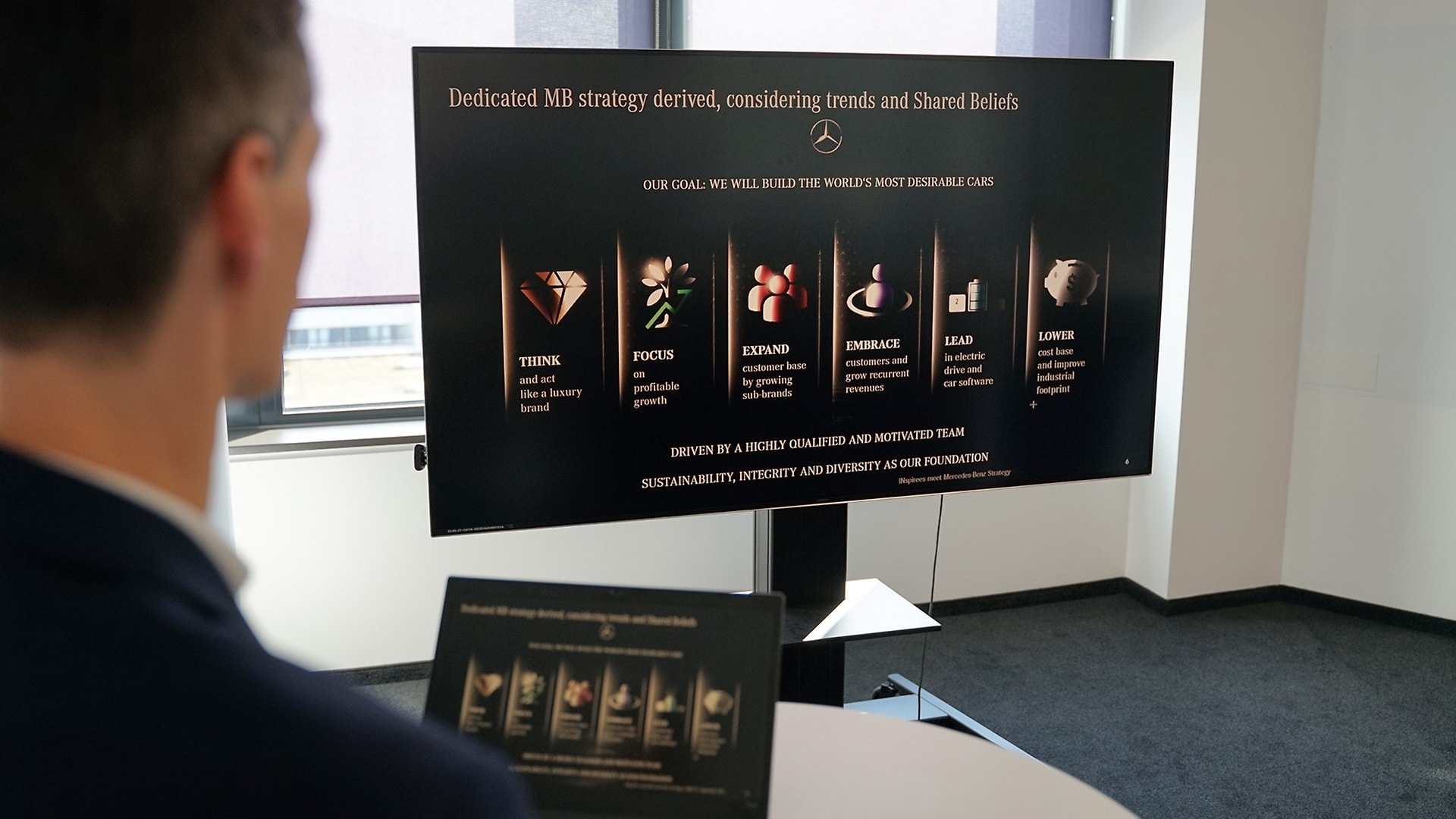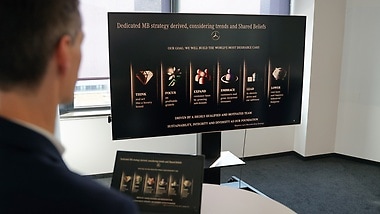Hello, Christopher. As the Head of Strategy Intelligence & Development, you are responsible for monitoring and evaluating developments and trends in Mercedes-Benz's business environment. Where are you seeing the biggest changes taking place right now?
There is an extremely wide variety of trends. In the automotive industry, electrification and sustainable mobility are playing a key role. For instance, how quickly will the transition to purely electric vehicles take place? Then there are also many user trends that are having an effect on us – be it climate and environmental protection, which covers not only the drive system, but also the materials we install and social issues such as the question of the mobility of tomorrow. Mobility will remain a personal issue. However, the question in the future will be: Do I still want to drive myself, or do I prefer to spend that time enjoying entertainment or relaxing? And how can my vehicle or other technologies help me do that? The demands in each market are changing as well. All those are current examples of important topics.
What do those trends mean for the corporate strategy at Mercedes-Benz?
Besides areas like electric mobility and vehicle software, we are working on strengthening our customer retention as one pillar of our strategy. Do we achieve that merely through the product experience of driving, and how can we also manage to impress customers with our performance in the area of digital features such as infotainment systems and innovatively designed controls and displays?
Do you and your team then make a recommendation?
Every member of the team is responsible for a particular focus area on our strategic trend radar. One of those is called Clients and Society. Two colleagues comb Internet sources as well as internal and external networks for signals. Then they record them and evaluate them according to their relevance. Does a particular trend concern us – and if so, how strongly? Then we attempt to contact the persons in charge of strategic initiatives and discuss whether our existing ideas and measures are sufficient for that trend, or if we need to refine them. Our job includes not only uncovering trends but also conveying information about them. What do they mean for us, what options do we have, and which ones do we recommend? We always submit our recommendation in conjunction with the respective specialist units because our eight-person team by itself is not able to judge every detail.
You and your team play an important role in the company. Can you tell us what your team looks like?
I am convinced that diversity and different perspectives make us better – as a team and throughout the company. In our unit as well, it is important to have a diverse environment – that is, not simply a group of peers with the same gender and nationality, but to deliberately choose colleagues with widely ranging strengths, perspectives and backgrounds who approach and assess things in different ways. Our team consists of industrial engineers and information systems specialists, individuals with degrees in business and Chinese, political science majors, experts from marketing and sales, consulting, controlling and IT. Their levels of experience range from beginner or early professionals to those with more than 25 years on the job.
How do you uncover trends?
We gain a considerable amount of insight from articles on the Internet and on social media posts. They may be press releases or technical blogs or even tweets from influencers. A good way to discover trends in the field of technology is to do research in patent databases. Corporate events and investor conferences yield plenty of information when companies explain their strategies or products and services. In Addition, attending industry symposiums and events and expert forums or even one-on-one discussions with peers from other industries is important as well. I use the term peers to refer to colleagues who have similar functions, duties or expertise and who learn from one another by sharing information and contributing new viewpoints on processes, methods or developments. This culture of critical discussion across team boundaries allows individuals to grow beyond themselves in a positive sense.
,xPosition=0,yPosition=0)




,xPosition=0.5,yPosition=0)